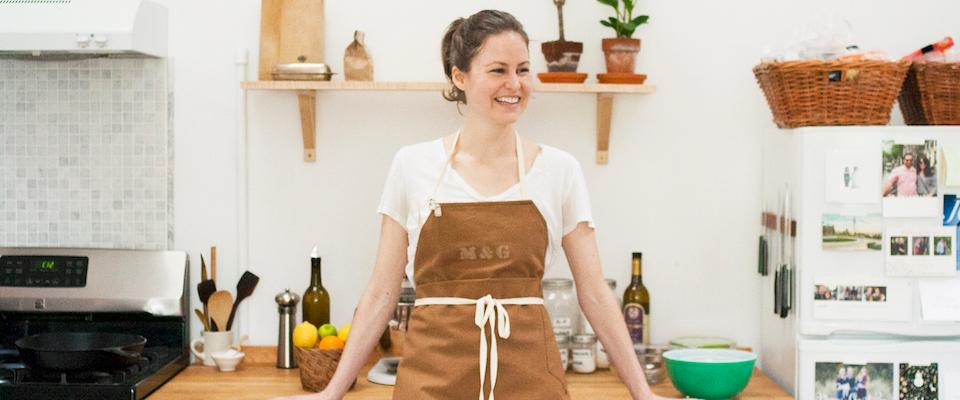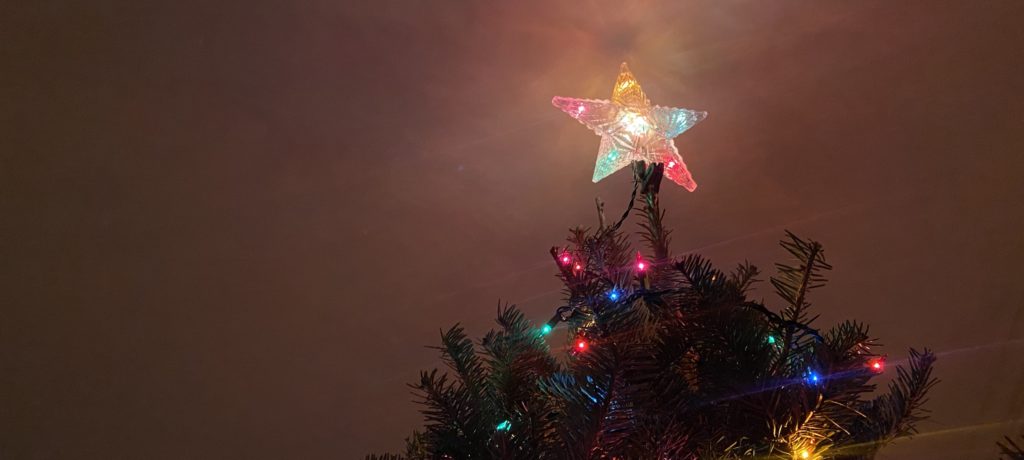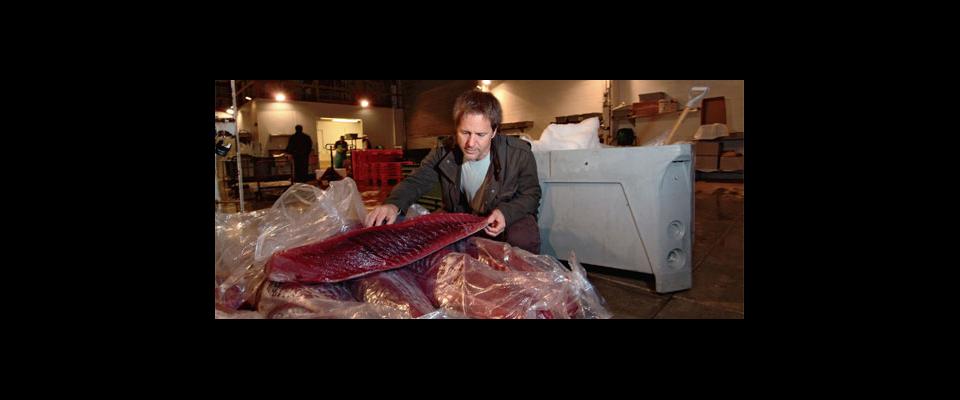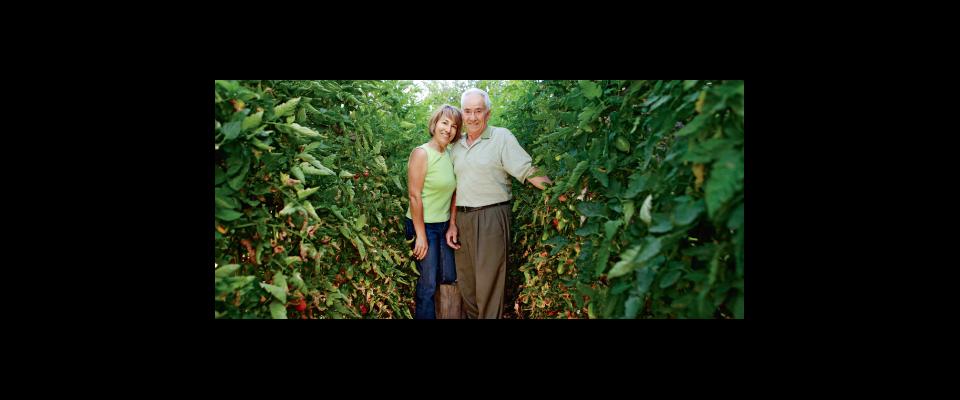In an era when menus often double as moral statements, how refreshing it is to have Maria Zizka and her dozen joyful cookbooks out there, celebrating food without sermonizing to readers.
The Berkeley local and Cal grad was recently named to Forbes 30 Under 30 “redefining the way we eat, drink, and think about food.” Zizka was the only writer in the bunch. At 29, she has penned hundreds of recipes and contributed to twelve cookbooks—two of which were finalists for the James Beard Awards.
Zizka has made a career out of collaborating with East Bay chefs to bring the flavors of their restaurants to the printed page. Among her more notable works are Tartine All Day, published with Elisabeth Prueitt, co-founder of the much-loved Tartine bakery, and This is Camino, published with chefs Russell Moore and Allison Hopelain of Oakland restaurant Camino, where seasonal dishes are fired in a hearth.
“I like to build sentences into the recipe that make you feel that the chef is there next to you, holding your hand, guiding you to cook.”
Translating a restaurant recipe to a version suitable for the home kitchen is not as straightforward as it may seem. True, the burgeoning of farmers markets and specialty aisles in grocery stores has given home cooks better access to high quality ingredients, but differences in equipment persist—and that makes a difference. Commercial ovens tend to cook hotter, and the typical commercial pan is often aluminum rather than the home cook’s cast iron, copper or stainless steel, leading to differences in heat distribution. And because home cooking generally requires less volume, a recipe for the home kitchen will cook faster, necessitating reductions in cooking time and temperature.
“I feel like my job is really translating,” said Zizka. “I have to understand both the commercial kitchen and the home kitchen.” Not to mention understanding the chefs who occupy those spaces.
For This is Camino, Zizka shadowed owner Russ Moore for hours at a time, carefully studying his approach to cooking and presentation.
“It’s almost like method acting,” she said. “I had to write those recipes in Russ’ voice, in the verbs that he would use.” That can even come down to something so specific as describing whether an ingredient should be ‘put’ or ‘placed’ somewhere. “Russ would not ‘place’ something.”
In addition to playing translator, Zizka also occasionally plays the role of transcriptionist. “You can imagine that chefs have a lot of ideas for recipes in their heads and if I’m lucky they might have an oil splattered notebook.”
Every recipe goes through several iterations before it ends up on the page.
“I like to put a lot of detail into the recipes,” said Zizka. “I like to build sentences into the recipe that make you feel that the chef is there next to you, holding your hand, guiding you to cook.”
While she observes, she is constantly asking the chef for guidance so that she in turn can guide the reader. “What would happen if I overcooked it? Can I fix it?”

As an undergrad at UC Berkeley, Zizka spent a lot of time at the UC Botanical Garden, considering the various uses of plants and herbs, and at local restaurants, sometimes imagining ways to tweak a recipe. She eventually began dreaming up untested combinations, which she would then experiment with at home.
Zizka will get a turn to guide readers through some of the recipes that emerged in her very own cookbook, due to hit shelves in early 2019.
Ironically, her first solo attempt will be a guide to cooking for two. Or rather a guide for cooking with two. Zizka describes the book as, “a modern take on the newlywed cookbook,” a subgenre that was once common in the wedding registries of brides and grooms. “This is my version of what it means to cook with someone you love today,” she said.
She describes the style of earlier books as “unilateral”, intended for two but written for one. “They didn’t reflect what was so beautiful about cooking with another person,” she said.
Her own cooking companion is husband Graham Bradley, a fellow Cal grad and causa prima of Zizka’s career as culinary maven. The two began their relationship as undergrads, and it was Bradley who suggested Zizka take up food writing.
“We were walking across Memorial Glade when Graham mentioned that the Daily Cal was looking for a Wednesday columnist,” said Zizka. “And he said, ‘I think you should write it and you should make it about food.’”
Bradley and Zizka got the gig together, and settled on co-authoring a weekly food column for the student newspaper in 2009. The pair urged readers to appreciate the textural gratification of cooking, (“Making food should be engaging, energizing and, above all else, tactile.”); they shared the secret to good soup (“First, make sure you have some time on your hands.”); and encouraged readers to experiment in an introduction to culinary improvisation (‘We would love it if you watched our slideshow and thought to yourself, “I should make that sandwich, but with shrimp!”’)
After graduation, Zizka earned a master’s degree in food culture and communications from the University of Gastronomic Sciences in Pollenzo, Italy. The experience boosted her career, leading to an opportunity to collaborate with Los Angeles chef Suzanne Goin on The A.O.C. Cookbook.
Despite the well documented woes of the publishing industry, food writing is doing very well. “Cookbook sales rise every year,” said Zizka. “To me that said there was something about them that didn’t quite translate to an ebook version.”
Though many home cooks now look up recipes and instructional videos online, Zizka finds real value to the physical artifact. “I love when people make notes in a cookbook,” she said. The scribbles in the margin, the dog-eared pages, and marks of dribbled gravy compose a sort of culinary diary. “You can see that you loved making that recipe”.





















